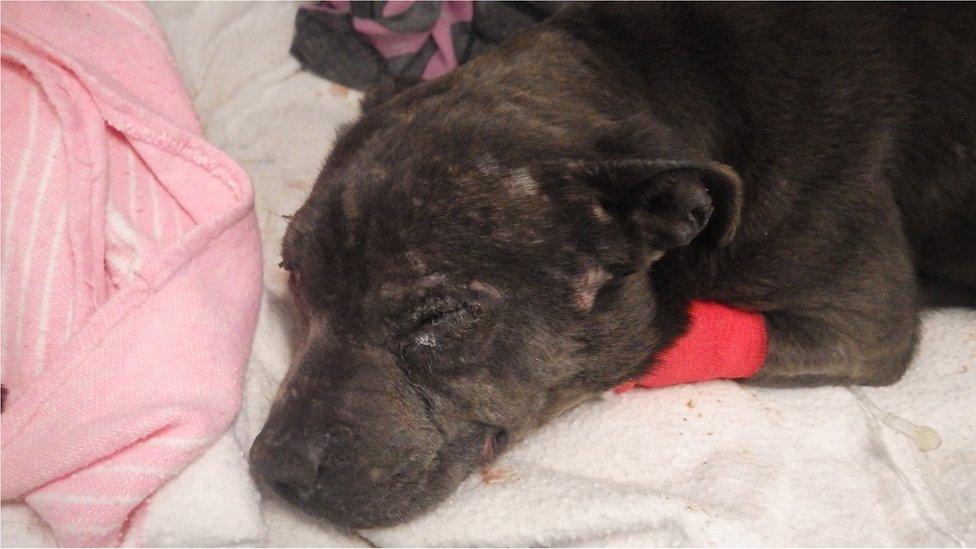The dogs stolen from their owners' homes
- Published
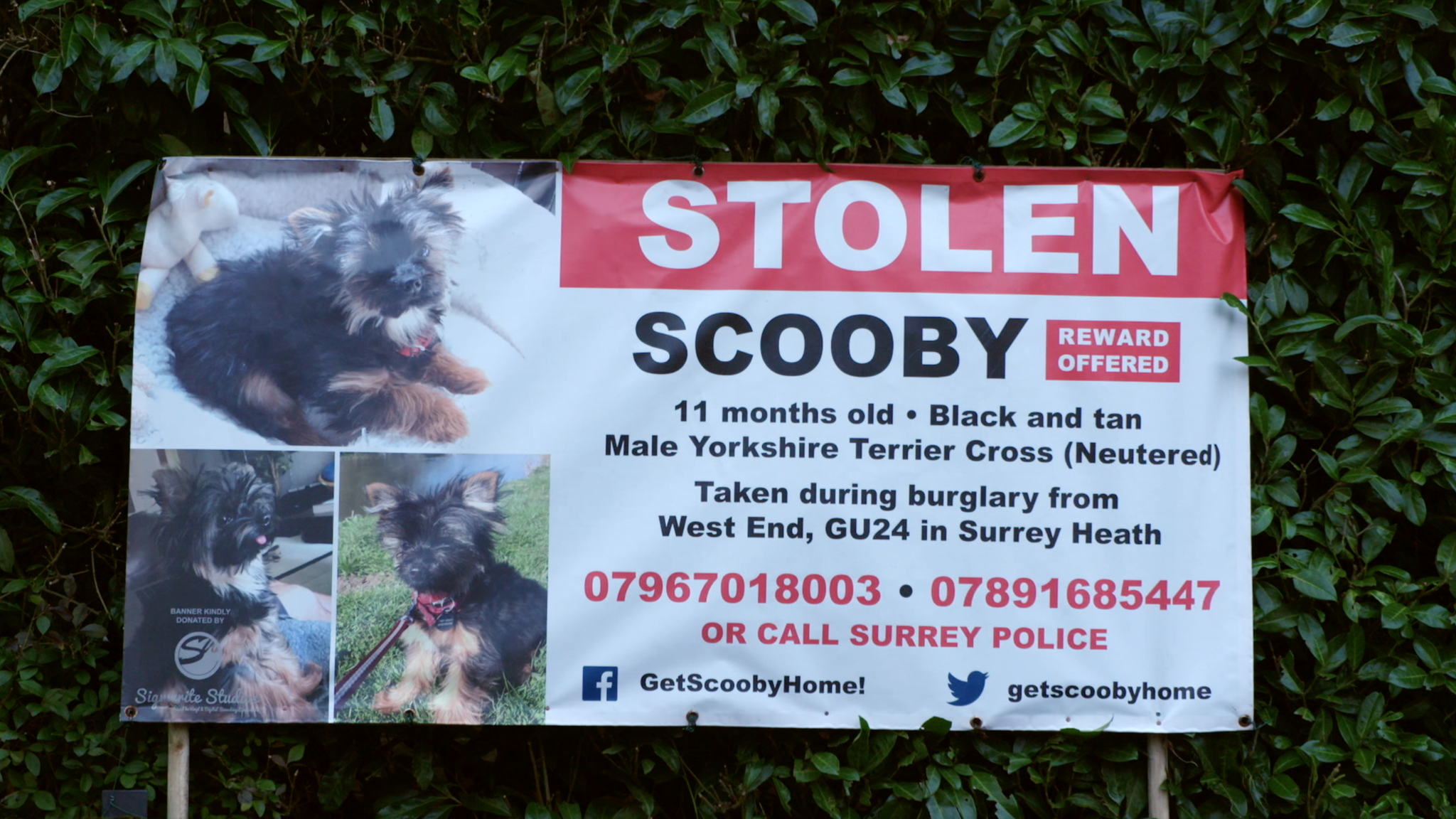
Scooby was stolen in September from the family home
The number of dogs being stolen is increasing despite the introduction of mandatory microchipping, an organisation that tries to trace missing dogs says.
Distraught owner Max Ferrari was at work last September when one of her sons called her to say their 11-month-old dog Scooby had been taken in a burglary at their home in Woking.
"I was just screaming and crying," she tells the BBC's Victoria Derbyshire programme.
"I remember coming home and going to the front door and just looking at the big hole in the door - and I just remember collapsing and crying."
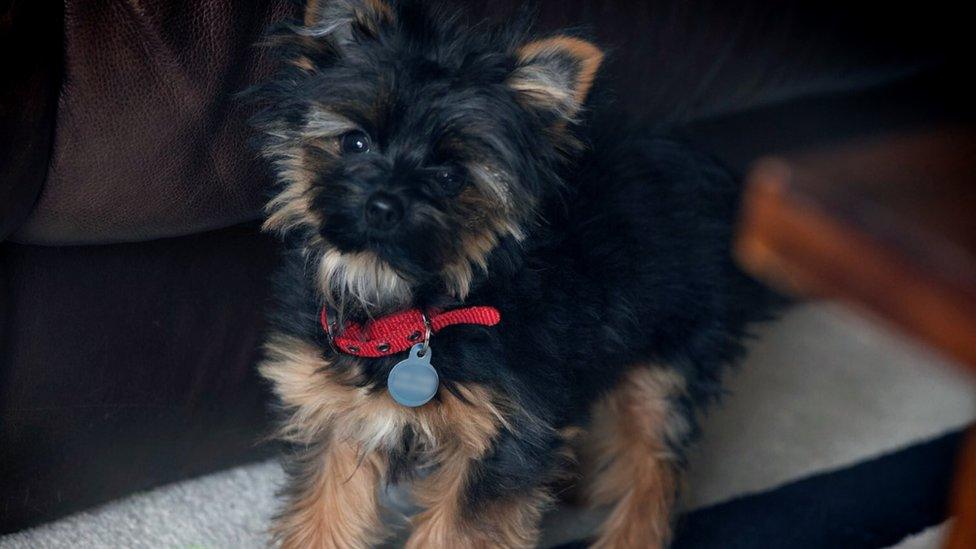
Scooby was 11 months old when taken
Scooby had become a central part of family life.
Videos and pictures still act as a reminder of happier times, including footage of Scooby's party trick - the way he howled along to the tune of Coolio's Gangster's Paradise.
But despite online appeals and offering a financial reward, Scooby, a Yorkshire Terrier-Chihuahua cross, has not been recovered.
Max says the theft has taken a huge personal toll on her and her family.
"Every morning when you wake up it's like it's happened all over again.
"It's the first thing on your mind, 'Where is he? Is he being looked after? Are they being kind to him?'.
"Not a day goes by when you don't think about it," she says, flicking through photos of Scooby on her phone.
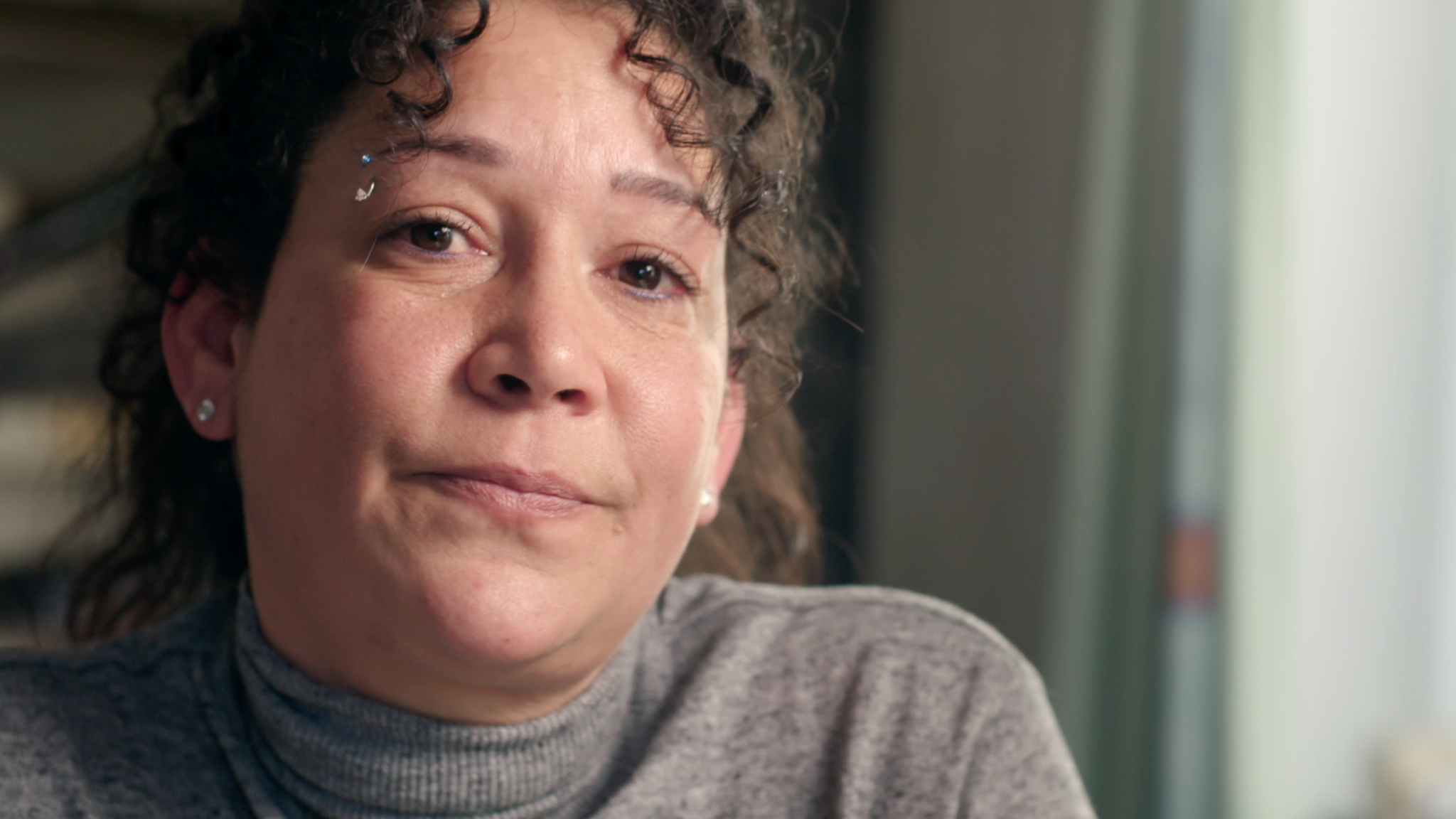
Max says she thinks about Scooby every day
Dog Lost, the UK's largest online service for stolen and missing pets, says it recorded a significant increase in the number of reported thefts in 2017.
This was despite the introduction of mandatory microchipping across the UK in April 2016, aimed at identifying lost and stolen dogs.
Some 217 dogs were reported stolen on the site last year, with another 32 registered as stolen in the first month of 2018.
In 2016, 61 dogs were reported stolen.
It says this increase is partly explained by better reporting by police forces, but believes the real number of thefts will be far higher as many victims do not report their dog stolen.
The Pet Food Manufacturers' Association has estimated there were 8.5 million dogs kept as pets in the UK in 2017.

Debbie Matthews says tougher penalties should be introduced for dog theft
Campaigners want tougher penalties introduced for dog theft to act as a deterrent. Under the current law, a dog is classified as a stolen good or chattel.
"The way the law sees it, is like you've had your mobile phone stolen," explains Debbie Matthews, from the Stolen and Missing Pets Alliance.
"Everybody can replace a mobile phone. You cannot replace your dog, they are a family member.
"You need to make people who steal dogs accountable for their actions. It really affects [victims] so badly."
The Department for Environment, Food and Rural Affairs has not yet responded to a request for comment, but the government has previously said that it "takes all crime, including the theft of a pet, very seriously... but does not believe it is necessary to create a new offence in order to do this".
It added: "When sentencing, the court would take into account the particular harm caused to the owner, in addition to all the other relevant circumstances of the offence."

Pet detective Colin Butcher says the majority of his business comes from stolen dog cases.
Colin Butcher, a former police detective who now runs his own pet detective agency based in Surrey, says the majority of his business comes from stolen dog cases.
He believes one reason behind the rise in stolen dogs is the number of puppies being stolen from breeders - often by people posing as potential buyers.
"The number of websites where dogs can be sold has created a marketplace that gives thieves more options to make a profit.
"So if a thief targets a breeder and steals puppies, if it's a breed that's in demand, that's a few thousand pounds profit," he explains.
Many of these stolen dogs will be sold on to unsuspecting buyers using fake papers, says Ms Matthews.
She believes vets should scan every dog that comes into their surgery for their first appointment, to discover cases where this has happened.
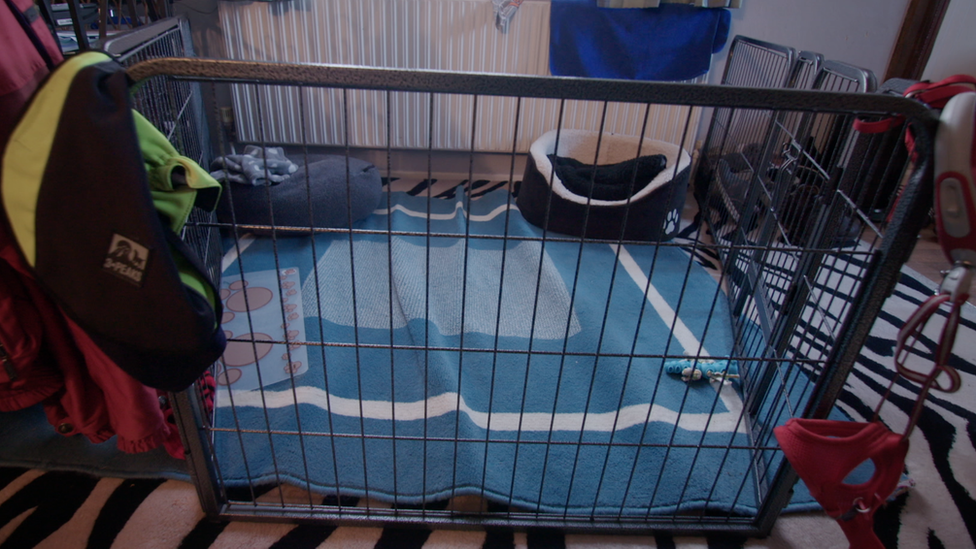
Scooby's pen has been kept as it was when he was stolen
The Royal College of Veterinary Surgeons says vets may scan for a microchip if they suspect a dog has been lost or stolen, but they should not be expected to routinely scan every dog that comes into their practice.
Five months on from Scooby going missing, Max says she has still not given up hope that he will one day return.
His pen is set up as it was before, and she says good night to him every evening before bed.
"We just want him back you know," she says, her voice breaking up as she tries to hold back the tears.
Watch the BBC's Victoria Derbyshire programme on weekdays between 09:00 and 11:00 on BBC Two and the BBC News Channel.
- Published28 January 2018
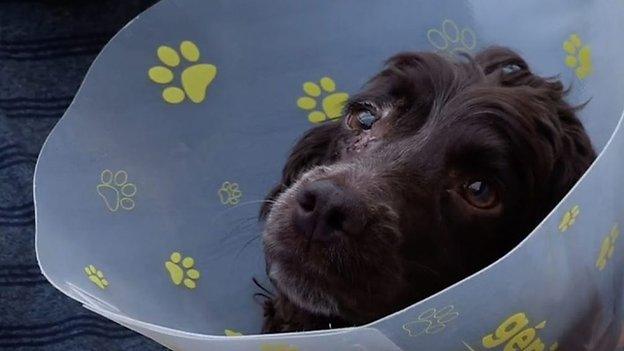
- Published4 January 2018
